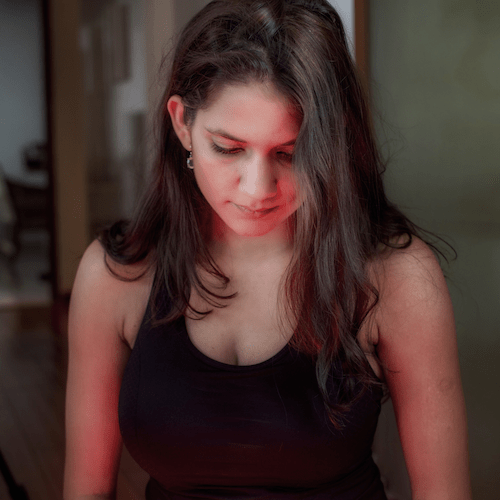I have been very averse to the concept of Yoga Gurus for a long time now. Because I’ve heard of too many experiences of sexual misconduct that the word itself leaves a bad taste in the mouth. A Yoga Guru is often put on a higher pedestal, they are revered as being more than a normal human being, their attention is highly coveted, and people often come to them in times of mental distress. All of which leads to an environment that is primed for manipulation. That is why this pattern of manipulation keeps unfolding over and over again with different teachers, in different schools.
Additional responsibilities of a Yoga teacher
A Yoga teacher (guru?) holds a great responsibility because by its very nature Yoga is a psychosomatic practice – It doesn’t just impact the body, it also unravels the mind. As you practice, Asana, Pranayama, and Meditation, you go through emotional ups and downs, as you develop an introspective awareness. It’s a process that unlocks emotions that may be have been repressed, and students therefore are vulnerable, especially in long term programs like Teacher Trainings. If a student is there with you for 30 days or more, away from their home, family, and support system, as a “Guru” you have double the responsibility to make sure they have a safe space to learn, to grow, and to come through the experience stronger. Yet there’s a Pandora’s box full of sexual misconduct, rape, coercion, committed by Yoga Gurus against their students.
What you can do when you don’t have a Guru
When I write this article, do note that I don’t mean that ALL GURUS are bad. If you find a good one that you align with it is great for you. But if you haven’t found one, then, it is not a loss. Just because everyone does not have access to a reliable, genuine Guru, does not mean that we cannot make progress. Since Yoga guides us towards the path of personal development, that in itself is your biggest strength. Over and above there are a number of means you have to support your journey.
1. Listen to wise people around you
It’s important to have people who can upfront tell you when you are wrong or when you need to course correct. People who are genuinely interested in you will not be mere critics – they will also go the extra mile to support you. Having an inner circle that can hold a mirror to your face is important – and the only way to develop such a circle is to be open to feedback. Allow people who care to criticise you without getting upset. It’s easier said than done, but it is the biggest investment you will make in yourself. Equally, don’t let every critic get into your head – it’s only the people who also support you that matter.
2. Read good philosophy books
Philosophy can help you introspect. It also works like an anchor that doesn’t let the storms of emotions and overwhelming life experiences stray you from your path. Use it to actively work towards being a balanced human being. I was always an avid reader and for many years was inspired by Ayn Rand. Then for a couple of years I was really invested in the Yoga Sutras. From there I discovered Bhagvad Gita – a brilliant book that helped me translate the sutras into everyday life. These days I am enjoying reading Stoicism and Marcus Aurelius’s meditations. All of these have been great gurus, empowering me with thoughts and ideas to enhance my journey.
3. Ayurvedic personality assessment
I used to think of Ayurveda as a medical system of diet and herbs. It wasn’t until I trained in this ancient science that I discovered its most powerful aspect – it’s a tool to improve your self-awareness. It can help you choose the right methods and lifestyle for your unique personality type. More importantly, it helps you live more intuitively. Rather than always seeking answers outside, it empowers by helping you understand yourself inside out. That awareness leads to change, and change leads to progress. It’s a slow process but it works. So, use Ayurveda to understand yourself better. Read this blog to learn about Doshas and Ayurvedic Personality. Or if you’re already familiar, then take this Dosha Quiz to know your Ayurvedic Personality Type:

4. Exploring therapy
Therapy is an excellent way to do self-work, to heal from past trauma, to change our behavior, to deal with emotions and to find a more balanced state of mind. All of these are the objectives of Yoga as well, so it is unfortunate that therapy is still considered a stigma due to which not many have access to it. Even I have tried therapy and I can emphatically state that it is something everyone must take up. It is inevitable, that in the future, therapy will be the norm as it’s a basic hygiene factor that contributes to a balanced life. It beautifully complements Yoga and Meditation practices because it gives you a very objective view of your personality and the areas you need to work on. It’s a safe space, with a trained professional, make use of it.
In the end you will need to decide what is best, as no one else can do that for you. I’ve chosen my path because of my personal experiences and the privilege of having good people around me. And I share it here for those who may hold a similar view point, personality and inclination as I do.
Wishing everyone all the very best in their yoga journeys. May we all find good people and safe spaces to explore our full potential.
If you’re a student looking for a TTC?
It is a pity that I have had to stop giving personal recommendations for Yoga Schools. Because I don’t know where a sexual predator or guru is sitting manipulating his students.
Therefore, your best bet would be to go to a place with a strong personal reference from someone you trust. And if you feel even remotely uncomfortable, leave immediately. I would tend to prefer women owned yoga schools or places run by couples. A vast majority of women practice yoga and go to TTCs. Yet everywhere you look in India it’s the men running TTCs. This just has to change and you can do your bit to support them.
You can also check out my video here where I share tips on how to choose a Yoga TTC:







